How Many Digital Marketing Channels Are There?
To dive into the world of digital marketing, it's essential to understand what it entails and the importance of utilizing various digital marketing channels.
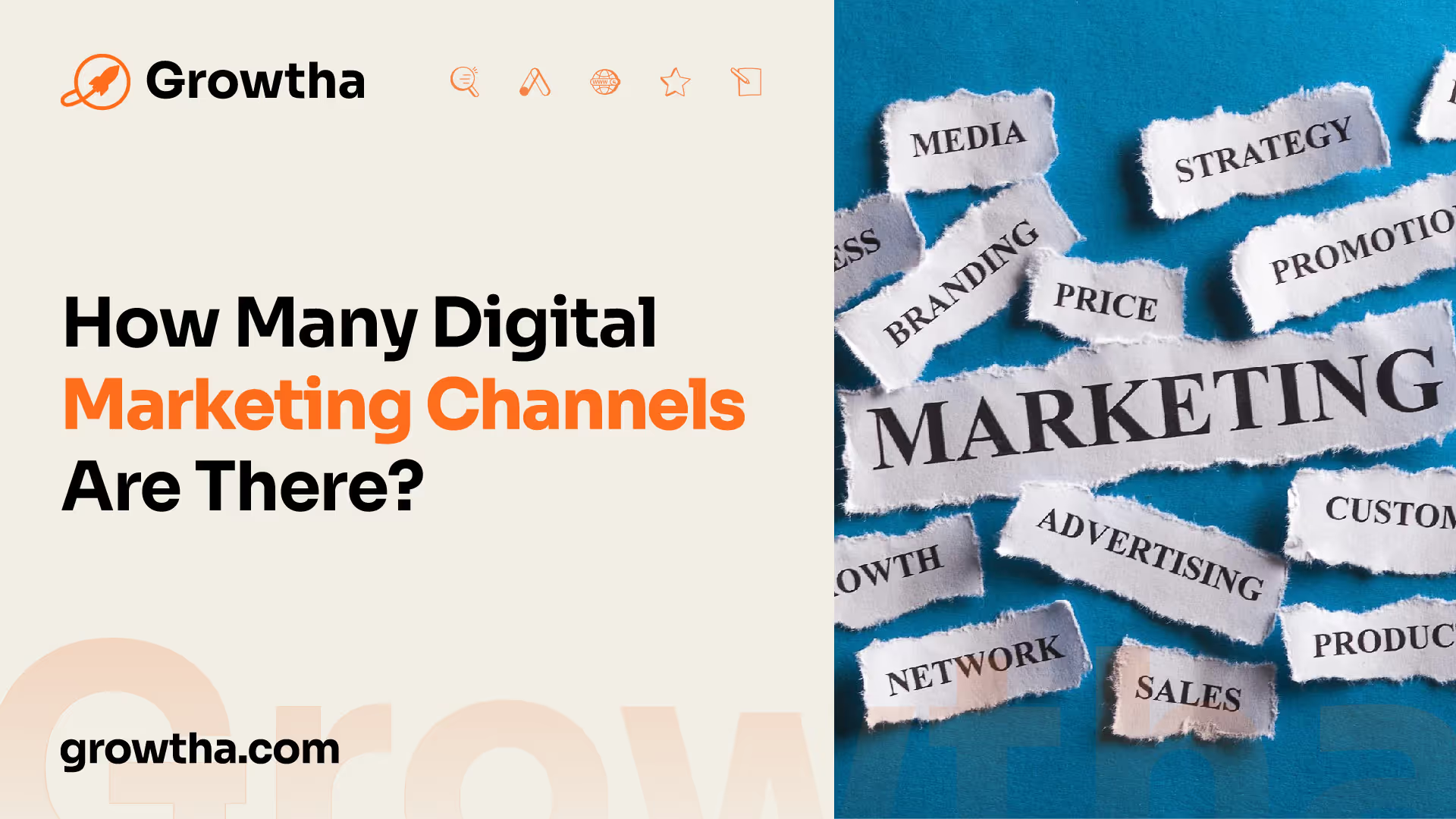

How Many Digital Marketing Channels Are There?
Understanding Digital Marketing Channels
To dive into the world of digital marketing, it's essential to understand what it entails and the importance of utilizing various digital marketing channels.
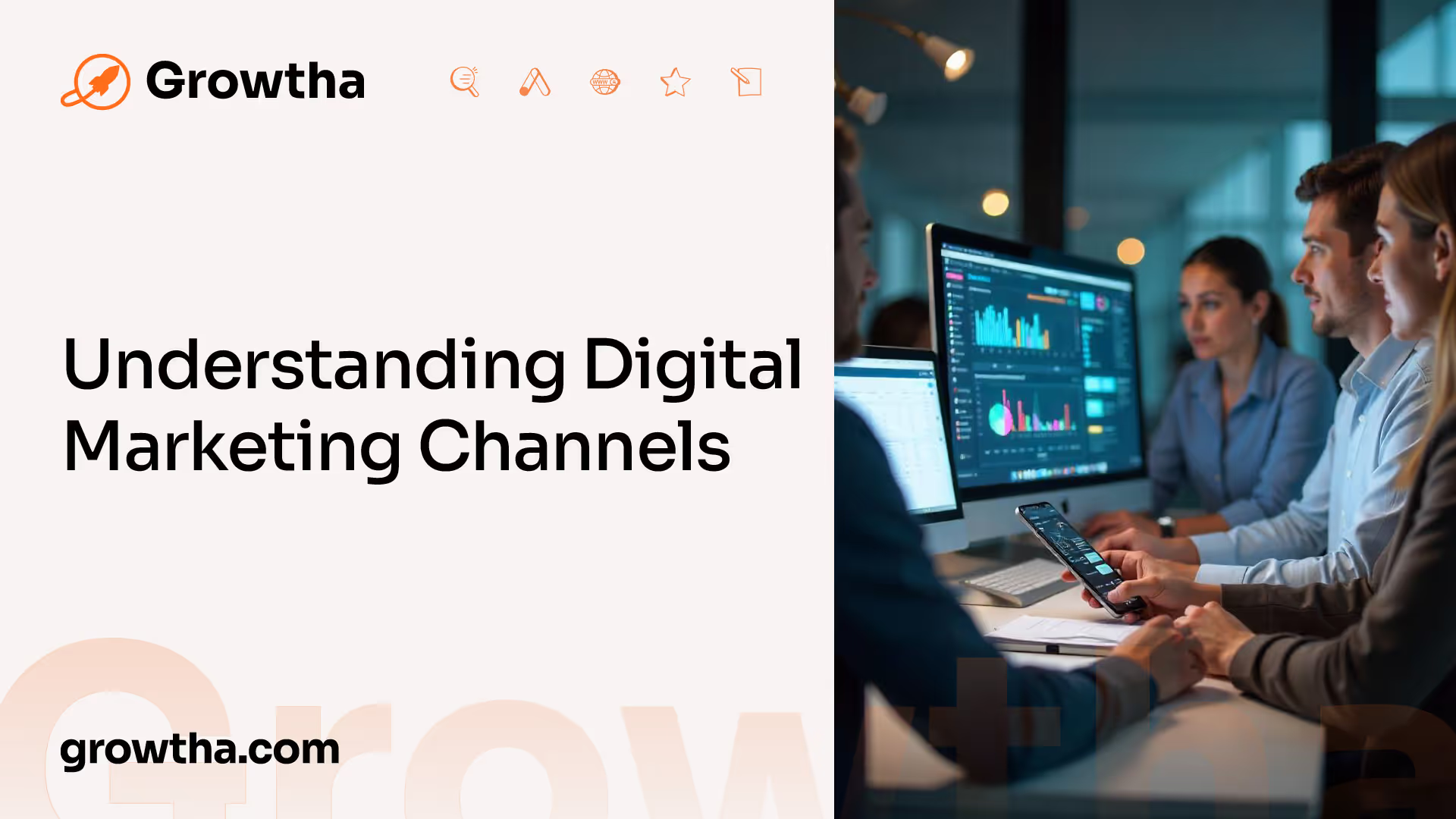
What is Digital Marketing?
Digital marketing, as explained by HubSpot, refers to the practice of businesses using digital channels and technologies to promote their products, services, or brand and achieve their marketing objectives. It involves leveraging the power of the internet, mobile devices, social media platforms, and other digital tools to reach and engage with target audiences.
Digital marketing encompasses a wide range of strategies and tactics, including search engine optimization (SEO), content marketing, social media marketing, email marketing, and paid advertising. By leveraging these channels effectively, businesses can enhance their online visibility, attract more potential customers, and build meaningful relationships with their audience.
Importance of Digital Marketing Channels
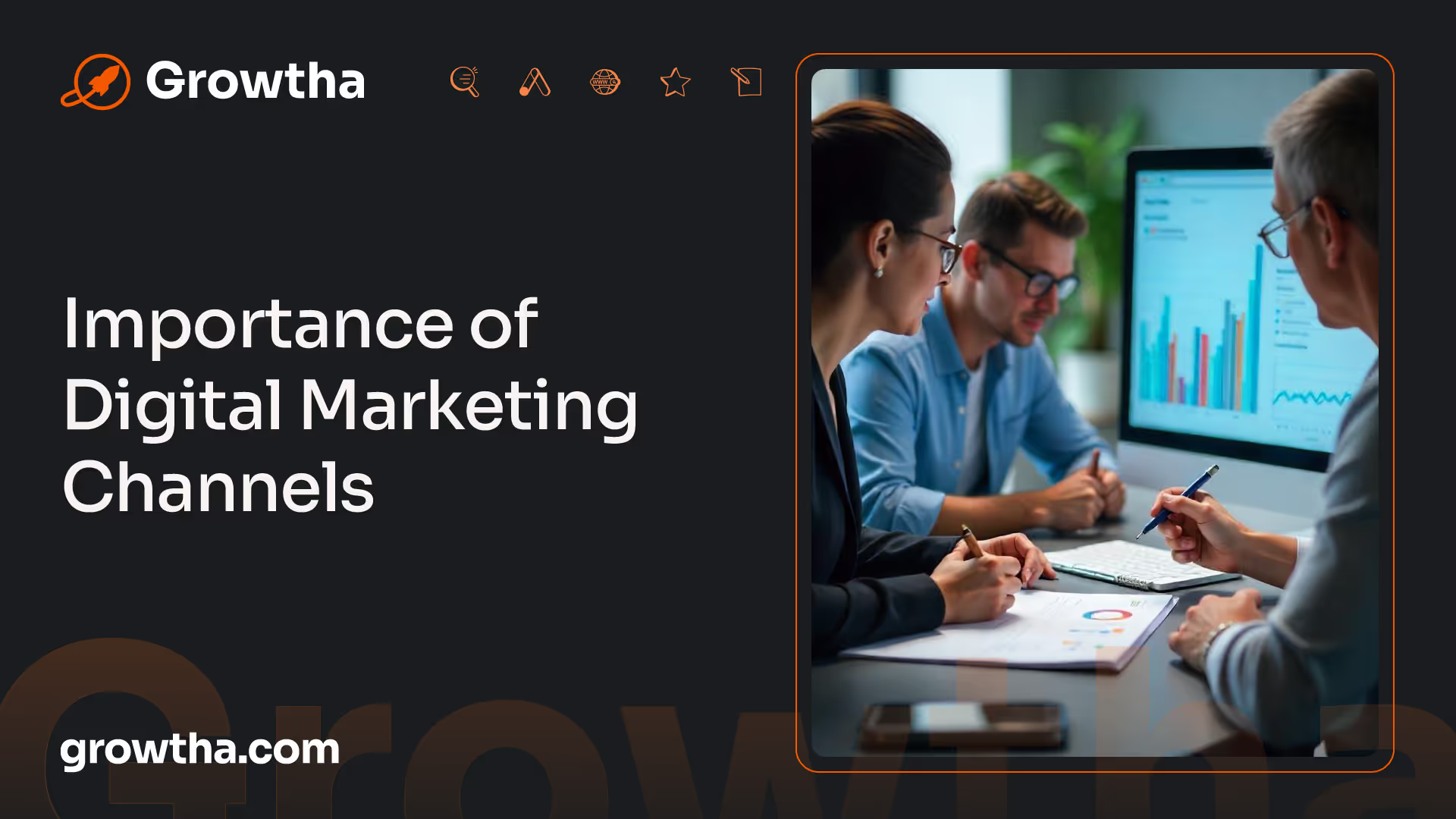
Digital marketing channels play a crucial role in today's business landscape. They offer numerous benefits and advantages over traditional marketing methods. Let's explore a few key reasons why digital marketing channels are of utmost importance:
- Wider Reach: Digital marketing allows businesses to reach a global audience. With the internet's pervasive presence and the widespread use of mobile devices, the potential to connect with customers has expanded exponentially. This broad reach enables businesses to target specific demographics and geographic locations, ensuring their marketing efforts are highly targeted and effective.
- Cost-Effectiveness: Compared to traditional marketing methods like print advertising or television commercials, digital marketing channels often provide a more cost-effective solution. For instance, email marketing allows for personalized and segmented messaging at a fraction of the cost of traditional direct mail campaigns. Similarly, social media marketing offers a cost-efficient way to engage with a wide audience.
- Measurable Results: One of the significant advantages of digital marketing channels is the ability to track and measure campaigns' performance. Through analytics tools, businesses can gather insights on website traffic, user engagement, click-through rates, conversion rates, and more. This data allows for data-driven decision-making, enabling businesses to optimize their marketing strategies and allocate resources effectively.
- Personalization and Targeting: Digital marketing channels offer the opportunity to personalize marketing messages and target specific segments of an audience. For example, email marketing allows for personalization and segmentation, enabling businesses to send targeted messages that boost customer engagement. Social media platforms also provide advanced targeting options, allowing businesses to tailor their content to specific demographics, interests, and behaviors.
- Flexibility and Agility: Digital marketing channels provide businesses with the flexibility and agility to adapt their strategies in real-time. Unlike traditional advertising methods, digital marketing campaigns can be adjusted, optimized, and scaled quickly based on performance and market trends. This ability to pivot and refine marketing efforts allows businesses to stay competitive in dynamic and evolving markets.
Understanding digital marketing and the importance of digital marketing channels is vital for businesses looking to maximize their reach and impact. By leveraging the power of email marketing, social media marketing, SEO, content marketing, and paid advertising, businesses can effectively engage with their target audience, drive brand awareness, and achieve their marketing objectives.
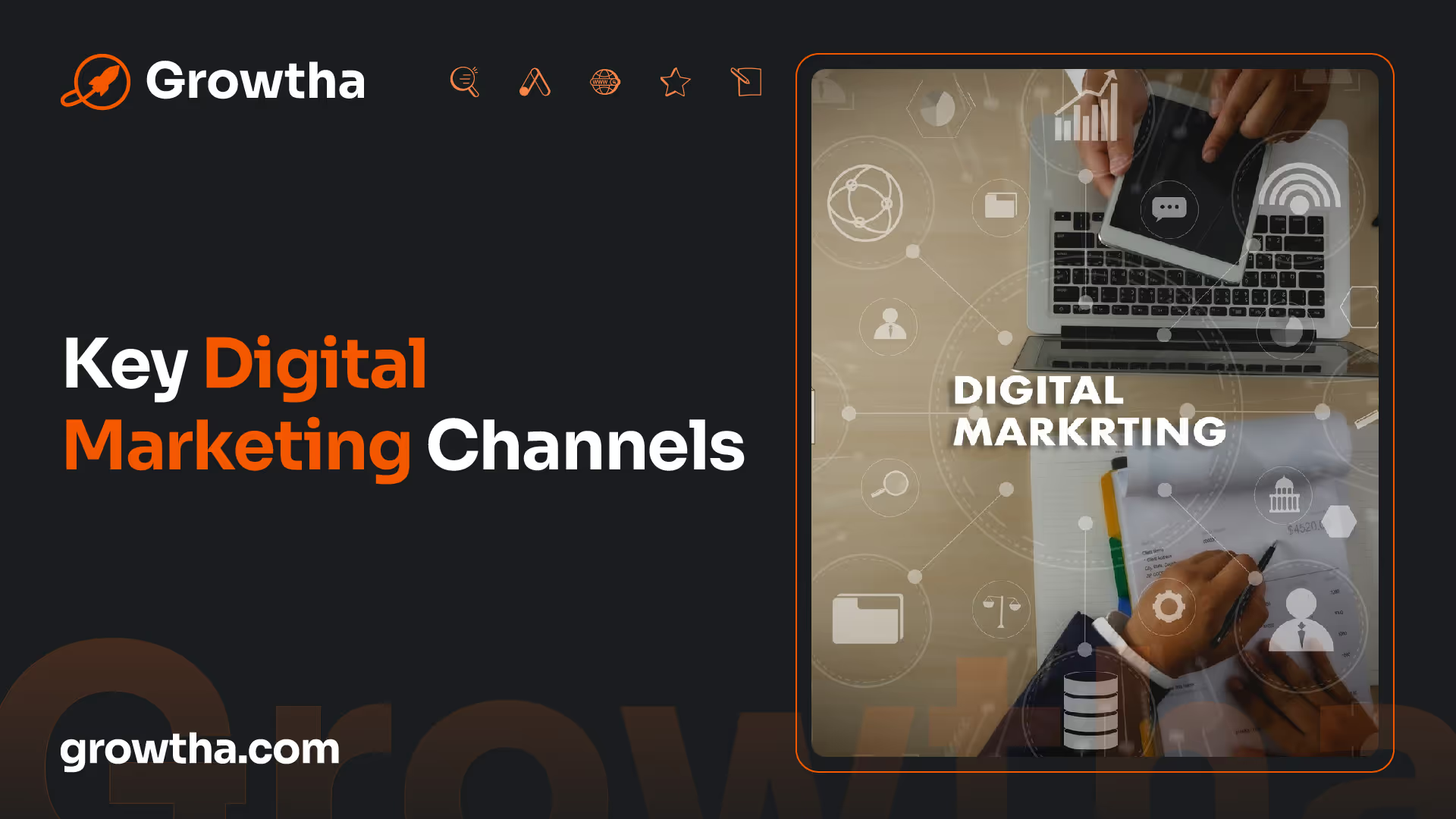
Key Digital Marketing Channels
When it comes to digital marketing, there are several key channels that businesses can utilize to maximize their reach and impact. These channels allow businesses to connect with their target audience, build brand awareness, and drive conversions. Let's explore some of the key digital marketing channels:
Email Marketing
Email marketing remains one of the most effective digital marketing channels, with an impressive ROI of $42 for every $1 spent, according to Mailchimp. Through email marketing, businesses can directly communicate with their audience, nurture customer relationships, and promote their products or services. It offers a personalized and targeted approach, allowing businesses to tailor their messages based on customer preferences and behaviors.
Social Media Marketing
Social media platforms such as Facebook, Instagram, and Twitter have become integral to digital marketing strategies. These platforms offer businesses a way to reach a wide audience and engage with their customers in a more interactive and social manner.
Social media marketing allows businesses to share content, run targeted advertisements, and foster meaningful connections with their audience. It is an effective channel for building brand awareness, driving website traffic, and generating leads [3].
Search Engine Optimization (SEO)
Search engine optimization (SEO) is a crucial digital marketing channel for businesses looking to increase their website visibility and organic traffic. By optimizing their website and content for search engines, businesses can improve their rankings in search engine results pages (SERPs) and attract more targeted organic traffic.
SEO involves various strategies, such as keyword research, on-page optimization, link building, and technical optimization. It is an ongoing process that helps businesses establish a strong online presence and reach potential customers who are actively searching for products or services.
Content Marketing
Content marketing is an effective digital marketing channel that involves creating and sharing valuable content to attract and engage a target audience. This can include blog articles, videos, infographics, podcasts, and more.
Content marketing helps businesses build brand awareness, establish thought leadership, and provide value to their audience. By producing high-quality and relevant content, businesses can attract organic traffic, boost website visibility, and nurture customer relationships. Content marketing is a long-term strategy that focuses on creating valuable content that resonates with the target audience.
Paid Advertising
Paid advertising channels such as Google Ads and Facebook Ads are powerful digital marketing tools that allow businesses to target specific demographics and reach a larger audience. With paid advertising, businesses can create highly targeted campaigns and display advertisements to users who are likely to be interested in their products or services.
Paid advertising offers various targeting options, such as location, demographics, interests, and browsing behavior, enabling businesses to optimize their ad spend and maximize their return on investment. It is a versatile digital marketing channel that can be tailored to fit different budgets and goals.
These key digital marketing channels provide businesses with diverse opportunities to connect with their audience, drive engagement, and achieve their marketing objectives. By leveraging the strengths of each channel and developing a comprehensive digital marketing strategy, businesses can maximize their reach and impact in the online landscape.
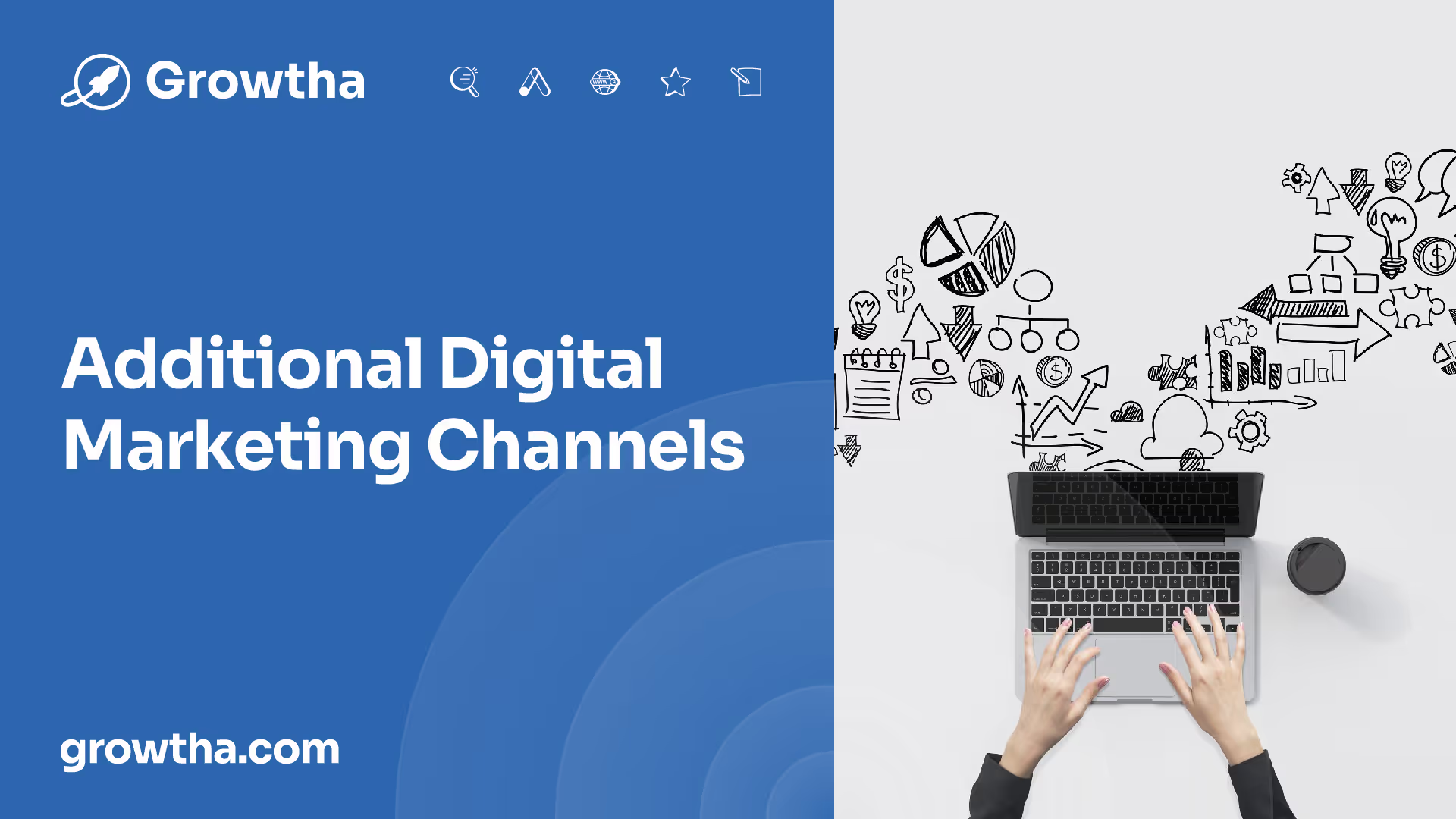
Additional Digital Marketing Channels
In addition to the key digital marketing channels discussed earlier, there are several other channels that businesses can utilize to maximize their reach and impact. These additional channels include influencer marketing, video marketing, and display advertising.
Influencer Marketing
Influencer marketing has gained significant popularity as a digital marketing channel. By collaborating with influential individuals in specific niches, businesses can reach their target audience and build credibility through sponsored content. Influencers have a dedicated following and can effectively promote products or services to their audience, generating brand awareness and driving engagement.
When implementing an influencer marketing campaign, businesses should carefully select influencers whose audience aligns with their target market. Authenticity and relevance are key factors in the success of influencer marketing campaigns. By leveraging the reach and influence of these individuals, businesses can tap into new customer segments and enhance their brand image.
Video Marketing
Video marketing is a powerful digital marketing channel for engaging and capturing the attention of the audience. With the increasing popularity of video content on platforms like YouTube and social media, businesses can leverage this medium to tell compelling stories, showcase products or services, and educate their audience.
Through visually appealing videos, businesses can convey their brand message effectively and evoke emotions in their target audience. Whether it's a product demonstration, a customer testimonial, or a creative advertisement, video marketing allows businesses to connect with their audience on a more personal level, resulting in increased engagement and brand loyalty.
Display Advertising
Display advertising is a digital marketing channel that allows businesses to reach a wide audience through visually appealing banner ads. These ads are displayed on websites, mobile apps, and social media platforms, grabbing the attention of users as they browse the internet.
By strategically placing display ads on platforms that are relevant to their target audience, businesses can effectively increase brand visibility and drive traffic to their website. Display advertising offers various targeting options, allowing businesses to reach specific demographics, interests, or geographic locations. With captivating visuals and compelling calls-to-action, display ads can generate clicks, leads, and conversions for businesses.
Incorporating these additional digital marketing channels into a comprehensive marketing strategy can help businesses expand their reach and connect with their target audience more effectively. By understanding the unique benefits and considerations of each channel, businesses can make informed decisions and optimize their digital marketing efforts.
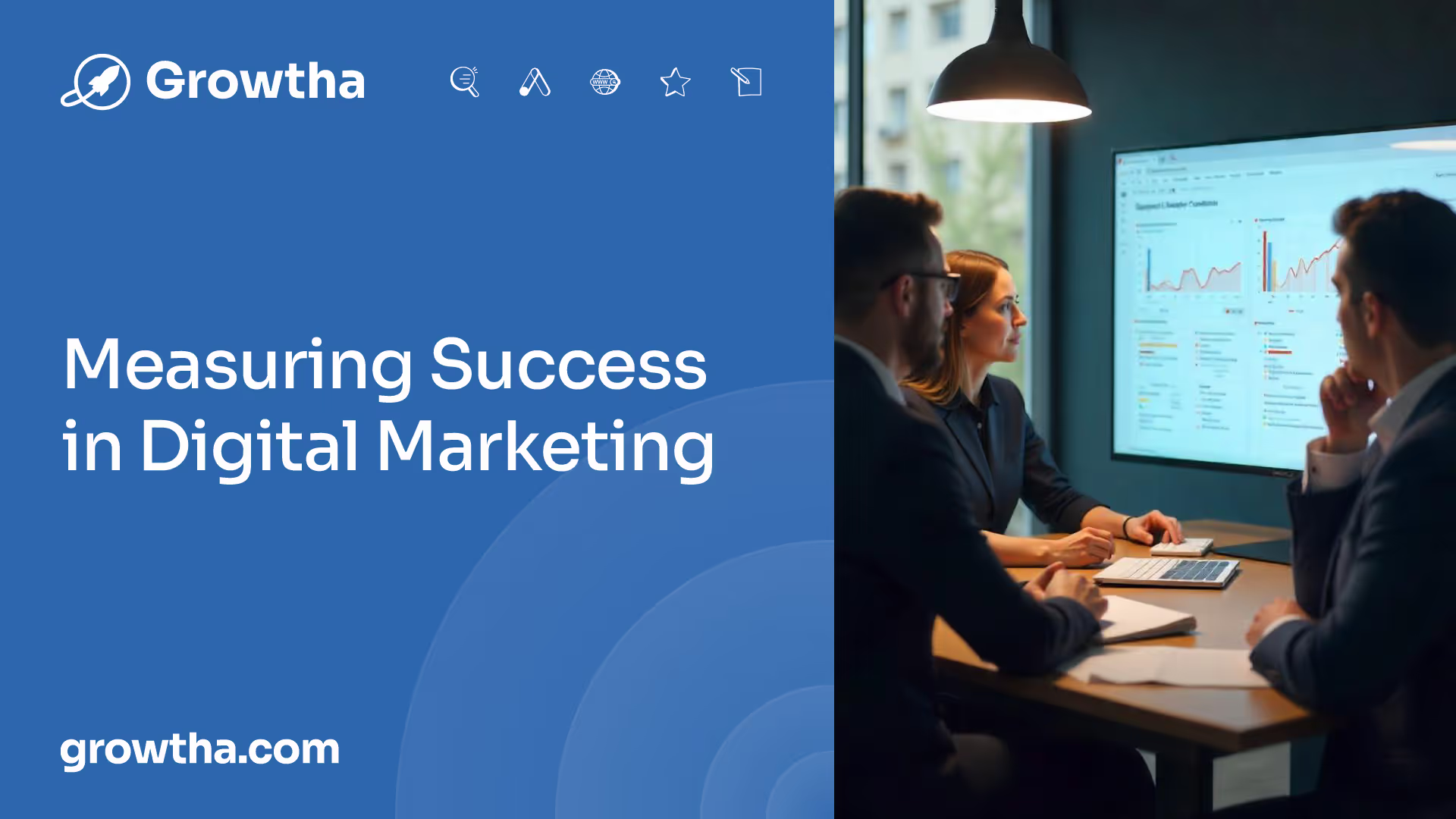
Measuring Success in Digital Marketing
To gauge the effectiveness of digital marketing efforts, it is essential to measure key metrics and track the return on investment (ROI) and conversions. This allows businesses to evaluate the impact of their marketing campaigns and make data-driven decisions to optimize their strategies.
Key Metrics for Digital Marketing
There are several key metrics that businesses should monitor to assess the success of their digital marketing initiatives. These metrics provide insights into various aspects of a campaign's performance and help businesses understand their audience engagement. Some of the key metrics include:
ROI and Conversion Tracking
Return on investment (ROI) is a crucial metric for measuring the profitability and effectiveness of digital marketing campaigns. It assesses the financial return generated from the amount invested in marketing activities. Tracking conversions allows businesses to attribute specific actions or goals to their marketing efforts and determine the conversion rate for each channel.
Email marketing, for example, has an average ROI of 3800%, making it one of the most cost-effective digital marketing channels. It allows businesses to reach new customers and retain existing ones by encouraging repeat website visits.
By integrating email marketing with customer relationship management (CRM) systems, businesses can personalize messages and build meaningful relationships. Tracking metrics such as open rates, click-through rates, and conversion rates enables businesses to measure the impact of their email campaigns and optimize future efforts.
Conversion tracking is also essential for evaluating the success of other digital marketing channels. For example, businesses can track conversions resulting from social media ads, website forms, or purchases made through paid advertising campaigns. By analyzing conversion rates, businesses can identify which channels are driving the most valuable actions and allocate resources accordingly.
Measuring success in digital marketing requires a comprehensive understanding of key metrics and careful tracking of ROI and conversions. By analyzing these metrics, businesses can make informed decisions, optimize their digital marketing strategies, and achieve maximum impact and return on investment.
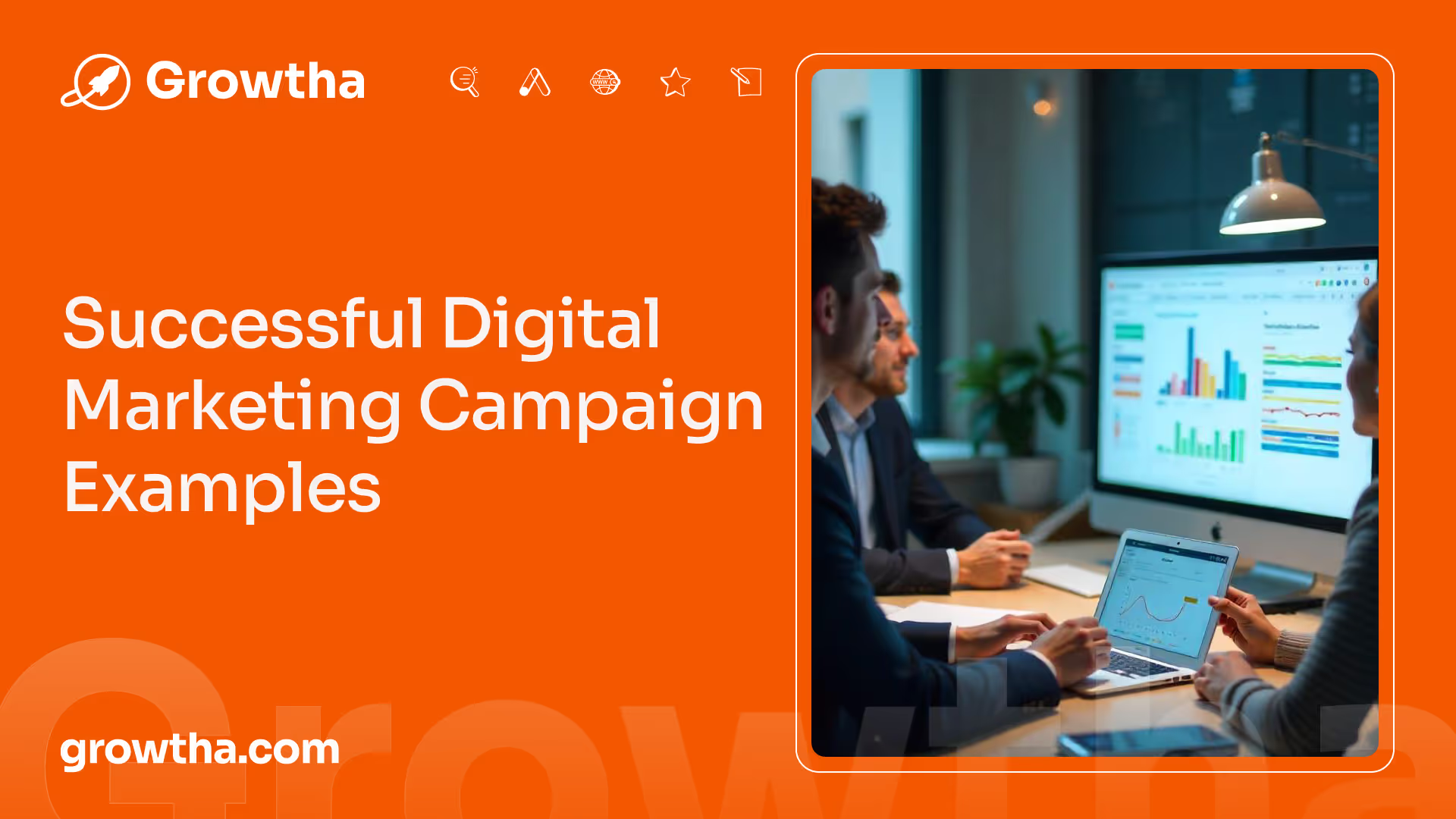
Successful Digital Marketing Campaign Examples
To gain inspiration and insight into effective digital marketing strategies, let's explore a few successful campaign examples from prominent brands.
Airbnb's User-Generated Content Campaign

Airbnb, the popular online marketplace for lodging and travel experiences, implemented a remarkable user-generated content (UGC) campaign. The "Made Possible By Hosts" campaign focused on showcasing authentic stories and experiences shared by Airbnb hosts and guests. By leveraging the power of UGC, Airbnb successfully engaged their community and generated significant brand awareness.
The campaign's video, featuring real hosts and guests, received an impressive 17 million views across Airbnb's platforms. By highlighting the unique and personal aspects of their service, Airbnb effectively demonstrated the value and authenticity of their platform.
UNIQLO's Digital Billboard Campaign
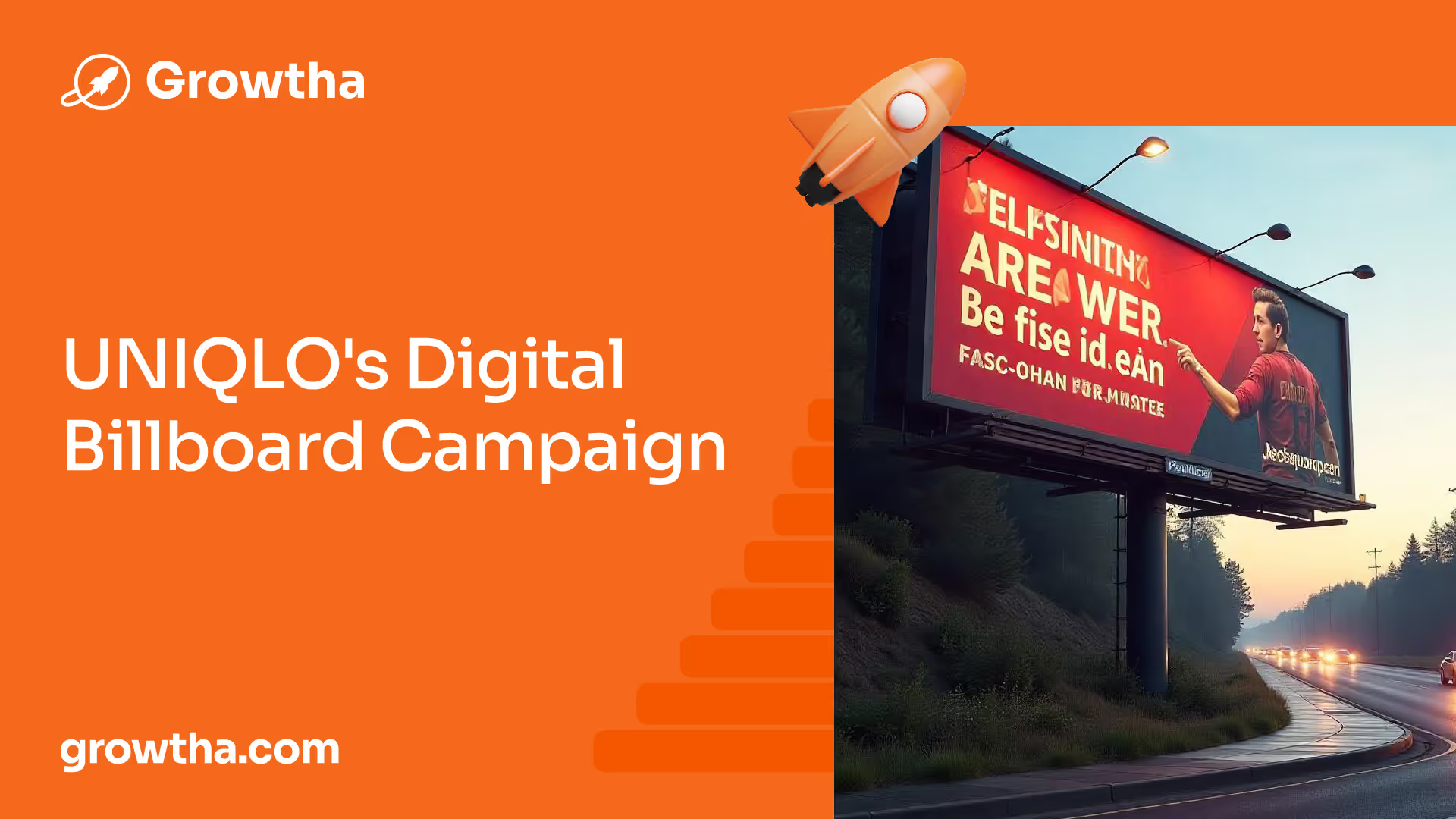
UNIQLO, a global apparel brand, executed a creative digital billboard campaign called "Uncover." This campaign aimed to engage customers and drive brand awareness by installing digital billboards at 100 locations throughout Australia. The billboards encouraged people to participate in a giveaway by scanning a QR code.
The campaign generated remarkable results, including 1.3 million video views, 25,000 newsletter subscribers, and 35,000 new customers. By combining the power of digital out-of-home advertising and interactive elements, UNIQLO effectively captured the attention of their target audience and successfully converted viewers into engaged customers.
American Express' Content Marketing Campaign

American Express, a leading financial services company, implemented a content marketing campaign called "OPEN Forum." This campaign aimed to provide valuable industry insights and expertise to business owners. American Express invited experts from various industries to create guest posts, which were featured on the OPEN Forum website.
The campaign proved to be a tremendous success, with the OPEN Forum serving as the top lead source for new card members for American Express. By offering valuable content and positioning themselves as a trusted resource, American Express effectively built credibility and fostered strong relationships with their target audience.
These successful digital marketing campaigns demonstrate the power of innovative strategies and creative execution. By leveraging user-generated content, digital billboards, and content marketing, Airbnb, UNIQLO, and American Express were able to engage their target audience, increase brand awareness, and drive tangible business results.

References
[1]: https://www.nibusinessinfo.co.uk/content/advantages-and-disadvantages-email-marketing
[2]: https://www.springboard.com/blog/business-and-marketing/digital-marketing-channels/
[3]: https://mailchimp.com/resources/email-marketing-benefits/
[4]: https://powertextor.com/blogs/digital-marketing-examples-campaigns/
[5]: https://business.adobe.com/blog/basics/digital-marketing-campaign-examples/







